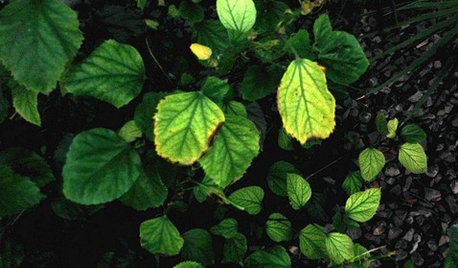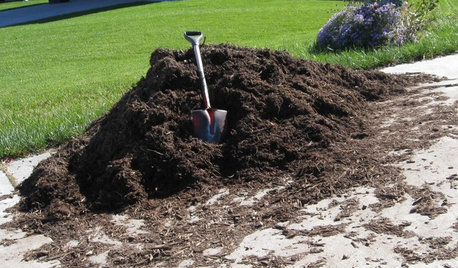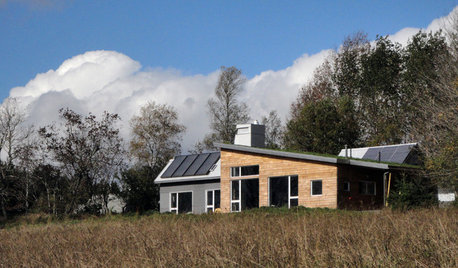Unfnished Compost = High pH & Potash levels?
HigherGroundGardens
9 years ago
Related Stories

GARDENING GUIDESGet on a Composting Kick (Hello, Free Fertilizer!)
Quit shelling out for pricey substitutes that aren’t even as good. Here’s how to give your soil the best while lightening your trash load
Full Story
KITCHEN DESIGNGreat Solutions for Low Kitchen Windowsills
Are high modern cabinets getting you down? One of these low-sill workarounds can help
Full Story
GARDENING GUIDESGrow a Beautiful Garden in Alkaline Soil
Got alkaline soil? Learn how to manage it and the many beautiful plants that will thrive in this ‘sweet’ soil
Full Story
GARDENING GUIDESWhat's Wrong With My Plant? Leaves Often Hold the Clues
Learn how to identify common plant ailments by reading their leaves
Full Story
HOUZZ TOURSMy Houzz: Mobile Microliving in Oregon
A 128-square-foot home for a couple in Portland is designed for simplicity, affordability and beauty
Full Story
GARDENING GUIDESGarden Myths to Debunk as You Dig This Fall and Rest Over Winter
Termites hate wood mulch, don’t amend soil for trees, avoid gravel in planters — and more nuggets of garden wisdom
Full Story
FRONT YARD IDEASBefore and After: Front Lawn to Prairie Garden
How they did it: Homeowners create a plan, stick to it and keep the neighbors (and wildlife) in mind
Full Story
GREEN BUILDINGHouzz Tour: Going Completely Off the Grid in Nova Scotia
Powered by sunshine and built with salvaged materials, this Canadian home is an experiment for green building practices
Full Story
FARM YOUR YARDHow to Get Good Soil for Your Edible Garden
The nutrients in your soil feed the plants that feed you. Here are tips on getting it right — just in time for planting season
Full Story
FARM YOUR YARDHow to Build a Raised Bed for Your Veggies and Plants
Whether you’re farming your parking strip or beautifying your backyard, a planting box you make yourself can come in mighty handy
Full StoryMore Discussions







glib
Kimmsr
Related Professionals
Signal Hill Landscape Architects & Landscape Designers · Tomball Landscape Architects & Landscape Designers · Brooklyn Center Landscape Architects & Landscape Designers · Ellensburg Landscape Contractors · Eureka Landscape Contractors · Lees Summit Landscape Contractors · Lexington Landscape Contractors · San Bruno Landscape Contractors · Vacaville Landscape Contractors · Waipahu Landscape Contractors · White Bear Lake Landscape Contractors · Woodland Landscape Contractors · York Landscape Contractors · Estero Decks, Patios & Outdoor Enclosures · Los Alamitos Decks, Patios & Outdoor Enclosurestoxcrusadr
Kimmsr
HigherGroundGardensOriginal Author
glib
idaho_gardener
toxcrusadr